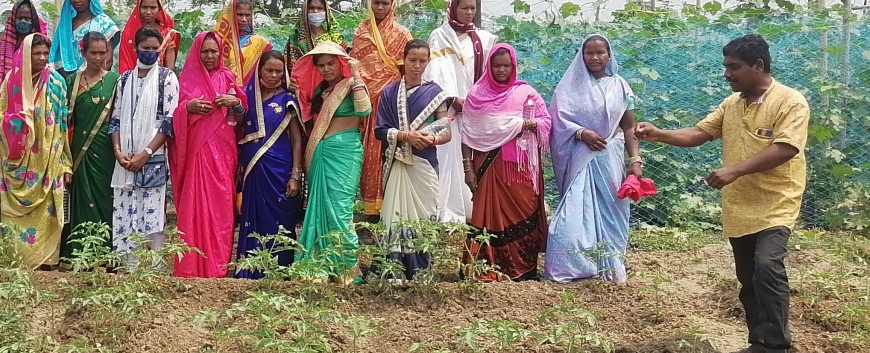Partners meeting held on 16th March 2022
The half-yearly progress cum review meeting was held on 16th March 2022. With the relaxation of Covid -19 restrictions, partners are now able to visit the project sites and organize field activities engaging farmers.
Some of the successful results from the different sites were presented by the partners at the meeting. Currently, the main focus of the project is to develop a framework to scale up the selected technologies that are climate adaptive, improve farmers’ income and conserve natural resources. In this regard, two stakeholder meetings were organized earlier this year, to discuss the conditions and institutional environment in the 2 states, Odisha and Assam, possible linkages with ongoing climate action and development programs, and state climate action plans.
4 virtual VKCs were set up in Odisha as part of the upscaling to reach a wider network of men and women farmers in building their capacity with the linkage of KVKs. And similar efforts are under process to add an additional 4 virtual VKCs in Assam.

Key outcomes of the project interventions during the last six months:
* The project made a significant change among smallholders on the adoption of Climate-Smart Agriculture(CSA) technologies to reduce the climate risks in low land paddy cultivation. In the pre-project phase, the cultivation practices adopted by the farmers were highly risked prone. A set of productivity-enhancing, product diversification and climate-resilient technologies were promoted to build the capacity and practice. Currently, the adoption rate of such technologies has reached to 55%.
* The continuous capacity building on CSA technologies among 200 champion farmers has enabled to reach 2500 farmers and developed a strong informal social network.
* The important CSA technologies which made significant changes in the productivity are System of Rice Intensification, Alternate Wetting and Drying and drip irrigation which resulted in 92%, 67% and 89% higher grain yield as compared to the traditional practice with an improved water use efficiency.
* The plant clinic programme empowered the farmers to take informed decisions in pest and disease management. It helped for a reduction in input cost to the tune of 55 to 65% along with increased productivity in the range of 12 to 15%. The number of farmers adopting integrated pest management practices are keep rising.
* Farmers started using the ICT services effectively to access new information, entitlement schemes and institutional linkages. 88% of the farmers expressed that the helpline and voice SMS is very useful to receive real-time advisories related to their farming issues.


